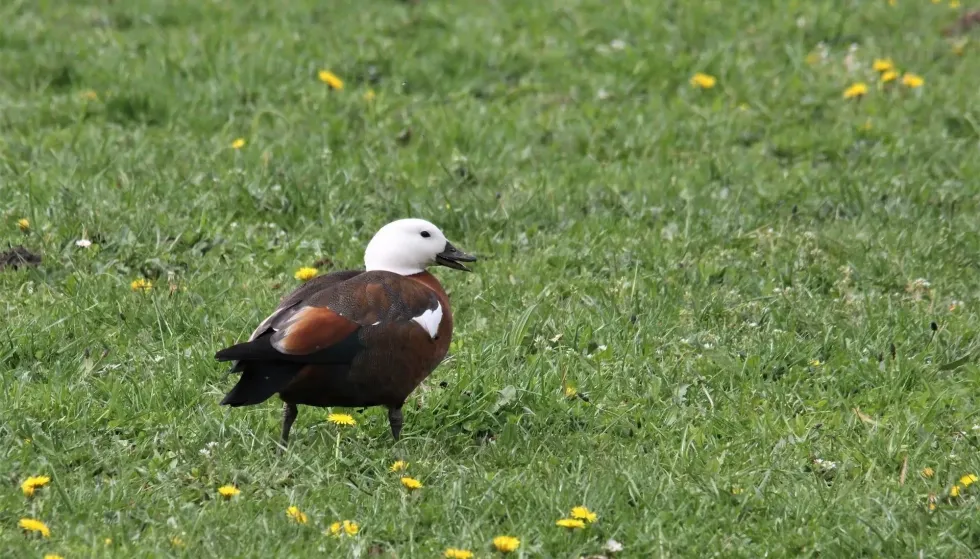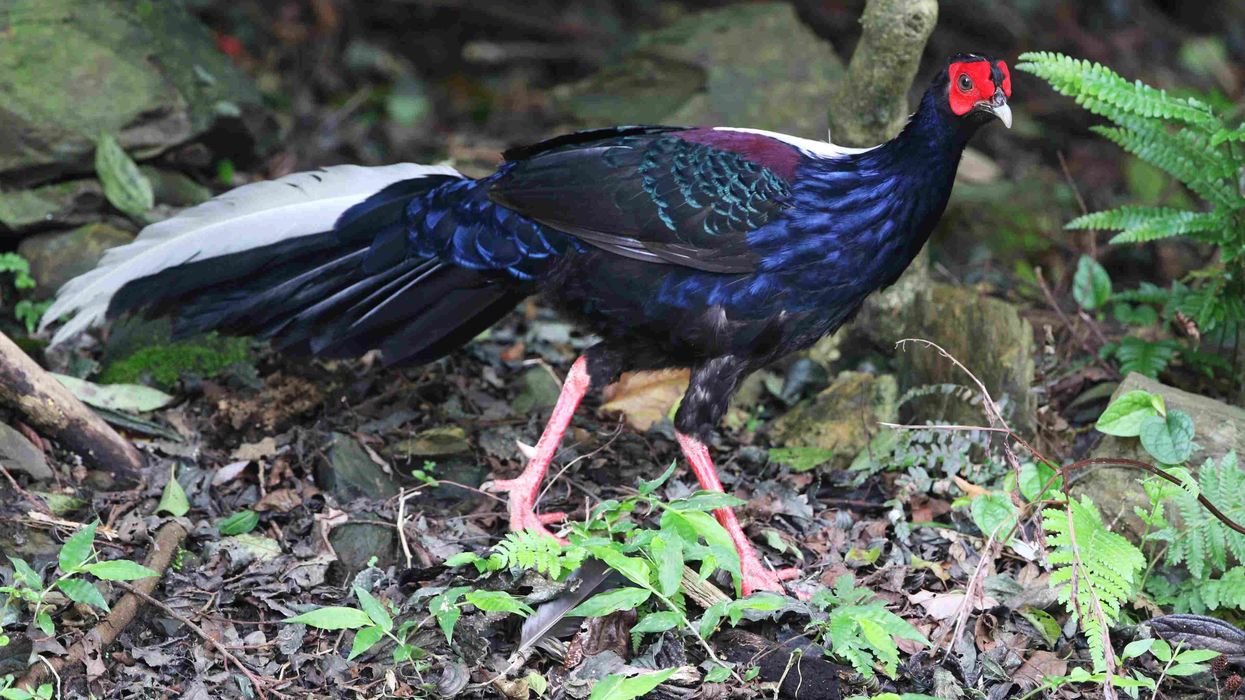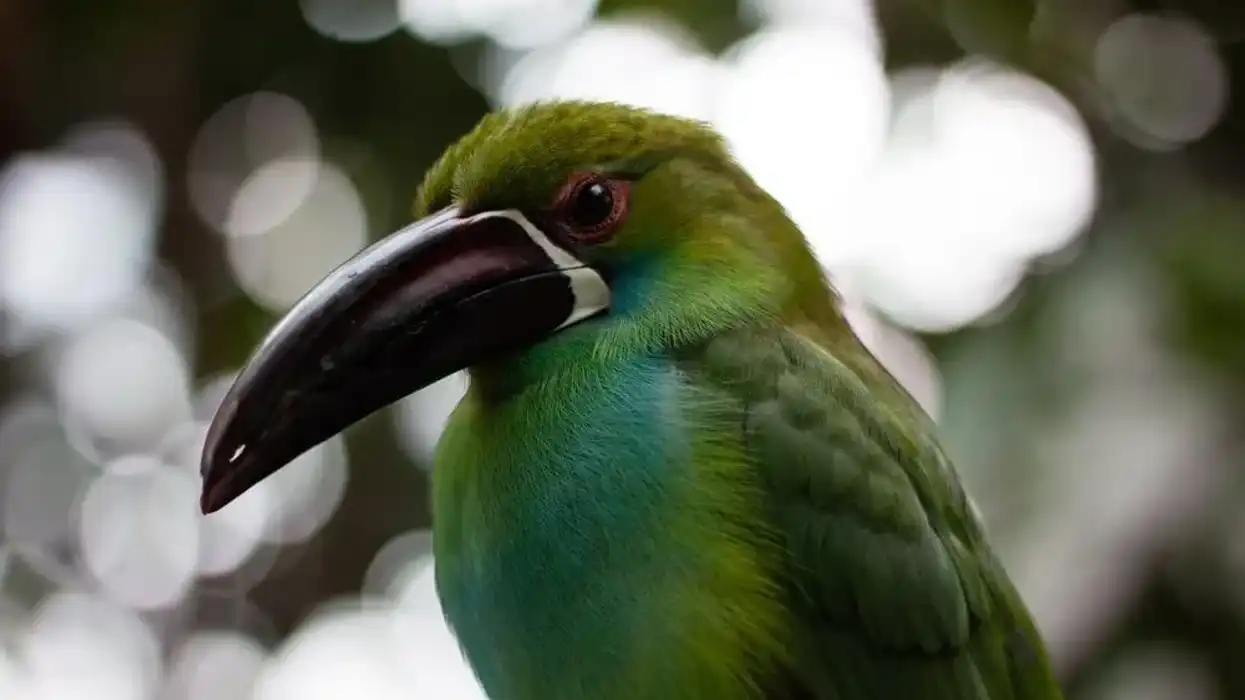There are a total of 120 species of duck in the world. Shelduck is a subspecies in the same family. The Ruddy shelduck is one species seen in North America as well as the common shelduck in rare instances.
This article will look into some fun facts about the paradise shelduck. The paradise shelduck is a colorful species and is often mistaken for a goose.
It is known as a game bird. These species are endemic to New Zealand. The paradise shelduck (Tadorna variegata) numbers have steadily increased in recent years.
Paradise shelduck (Tadorna variegata) birds are popular species and are hunted which led to a decline in their populations and for two to three decades, exploration needed to be controlled. The paradise shelduck is also known as pūtangitangi, 'pari', 'parry', and ‘parrie’. The paradise shelduck (Tadorna variegata) is a beautiful species of bird and a must-see for every birdwatcher.
If you enjoy reading this article, don't forget to check out pelican facts and swallow-tailed kite facts too.
Paradise Shelduck Interesting Facts
What type of animal is a paradise shelduck?
The paradise shelduck (Tadorna variegata) is a species of duck that belongs to the order Anseriformes.
What class of animal does a paradise shelduck belong to?
The paradise shelduck (Tadorna variegata) is a type of bird that belongs to the Aves class of species.
How many paradise shelducks are there in the world?
Paradise shelducks' total population exceeded 600,000 -700,000 birds in 2011, but recent populations have not been evaluated yet.
Where does a paradise shelduck live?
Paradise shelducks are species native to New Zealand. The paradise shelduck range is seen near pastoral landscapes and forest regions, near-shore islands, grass, pasture grasslands, wetlands, pasture, ponds, and urban to semi-urban areas where they have access to an ample amount of requirements.
What is a paradise shelduck's habitat?
The paradise shelduck lives near-shore islands, ponds, grass, grasslands, pasture forest creeks, and wetlands. They are also seen in water bodies that are not too deep like rivers, ponds, and lakes. These ducks are visitors of regions near urban and semi-urban regions as well including farms and other places close to their native habitat.
Who do paradise shelducks live with?
Paradise shelducks live solitary however they do stay close to species of their kind in flocks and are seen feeding in flocks too. Adult pairs specifically stay close to their mates and their flocks. They are seldom seen near people.
How long does a paradise shelduck live?
The paradise shelduck (Tadorna variegata) can live up to two years. The oldest bird's life expectancy was 23 years.
How do they reproduce?
The paradise shelduck female and male mate for life. Both males and females are territorial beings.
Although breeding pair bonds are monogamous they are challenged by unpaired shelducks constantly. The paradise shelduck male and female mate and then the adult female lays eggs by the breeding season in August-September in rock crevices, tree holes, under buildings, and other similar spaces away from the purview of predators.
The female paradise shelduck lays a clutch of 5-15 eggs. The incubation period lasts 30-35 days post the breeding season. Pairs take care of and protect the paradise shelduck chicks together until they are independent. The young ones fledge after eight weeks and leave their parent pairs to live independently.
What is their conservation status?
Paradise shelducks are classified as Least Concern species by the International Union For Conservation Of Nature (IUCN). They are partially protected with regulated hunting permitted in certain areas. They are widely distributed across various parts of New Zealand where they are endemic species.
Paradise Shelduck Fun Facts
What do paradise shelducks look like?
Paradise shelducks are colorful species of birds and although their overall anatomical structure is similar to other species of ducks with their goose-like shape, they have striking plumage and feathers which sets them apart. Plumage refers to their feathers collectively.
Females have brighter plumage than males and plumage is a crucial factor among bird species. During the breeding season, their plumage is considered when choosing a possible mate.
They have a habit of constantly molting which makes way for new feathers. The male and female of the species are easy to identify - the male has a black head with a dark gray to black body and females have a white head and chestnut body.
Their chestnut color is something that instantly catches the eye. The paradise duck has a wingspan of 43-53 in (110-135 cm).

How cute are they?
Paradise shelducks are extremely cute and beautiful just like any other species of duck and are goose-like. Females have a white head and males have a black head.
The white and black help distinguish between the two easily. Young chicks specifically are extremely cute to look at although they are generally never seen out much in the open. They are seen feeding on any herbivorous matter they can find as long as it satiates their hunger.
How do they communicate?
The paradise duck communicates particularly during the mating season where they give breeding calls to mark their territory and display bonds between their partners. Females have a particularly higher pitch as compared to males who have a more wheezy call. Their calls tend to overlap as well causing it to seem chaotic.
How big is a paradise shelduck?
The paradise duck is 24.8- 27.6 in (63-70 cm) in length which is two times bigger than the smallest species of duck, the African pygmy goose 12 in (30.5 cm).
How fast can a paradise shelduck fly?
Paradise shelducks are seen flying in pairs and grazing on pasture. These birds have relatively slow speeds while flying as compared to the fastest species of birds. They also can swim fast like other duck species.
How much does a paradise shelduck weigh?
The paradise shelduck male weighs 3.7 lb (1.7 kg) and the female weighs 3.1 lb (1.4 kg). They are herbivores and consume a lot of green substances including seeds, grasses, aquatic plants, and vegetation. The South African shelduck is considered the heaviest species in the family.
What are the male and female names of the species?
A male duck is commonly called a drake and females are commonly referred to as ducks. The male and female are easy to identify. The male has a black head with a dark body and the female has a white head and chestnut body. The white contrasts well with the other colors on their body.
Pair bonds are monogamous and parents come together for breeding. Pairs also differ in weight and reproductive functions. This is due to sexual dimorphism.
What would you call a baby paradise shelduck?
The offspring are called paradise shelduck ducklings. They fledge after eight weeks. Parents form a team and take care of the ducklings although the female's contribution is always more.
What do they eat?
They primarily eat herbivorous food. Paradise ducklings are seen grazing on grass, crops, and aquatic vegetation generally.
They move together in flocks and fetch food for crops and other vegetative matter. They are seen consuming food mostly during the daytime on the ground and resting throughout the night. They may also feed insects like flatworms to the young chicks as well in some instances.
Are they poisonous?
No, these ducks are not poisonous however, it is best to maintain a safe distance while observing any species of wild animals while they are on the ground or in flight. These ducks don't attack unless put in a position of threat and even then their instant instinct is to fly.
Hunters are often seen hunting for these species in grassland regions. However, hunting restrictions were placed to bring their population under control.
Would they make a good pet?
Ducks are a popular species for adoption by various people who own a farm or just want to own a duck. However, certain species of ducks, like the paradise shelduck, are native to the wild and best thrive in their natural environment.
Feeding them on time is essential. These ducks are usually hunted in certain areas to be consumed as food. The paradise shelduck for sale costs $300 and is mostly adopted/bought to be kept on farms.
Did you know...
Since these aquatic species of animals feed on pastures, or in large groups, farmers popularly refer to them as pests. However, farmers usually get rid of them using pesticides which may harm them.
Australia has its own shelduck species that is occasionally seen in New Zealand. The first Australian shelduck was recorded in 1973 in Hokitika.
Are paradise shelducks endangered?
No, these ducks are not endangered however, they are considered to be scarce in the United Kingdom. Their populations declined rapidly throughout the UK due to hunting practices which were on the rise however, through protection acts set in place in the last two decades, their populations were brought under control.
Why are they called shelducks?
The shelducks derive their French name Tadorne from the common shelduck and the Celtic word meaning 'pied waterfowl'. 'Pied waterfowl' means the same in English.
They are often confused with other species of goose and duck however, they all belong to different families. If you wish to see these species you could visit a region native to them. Or, you can see shelduck species native to the United States like the ruddy shelduck and the common shelduck.
Here at Kidadl, we have carefully created lots of interesting family-friendly animal facts for everyone to discover! Learn more about some other birds from our green heron facts and pipevine swallowtail fun facts pages.
You can even occupy yourself at home by coloring in one of our free printable paradise shelduck coloring pages.










